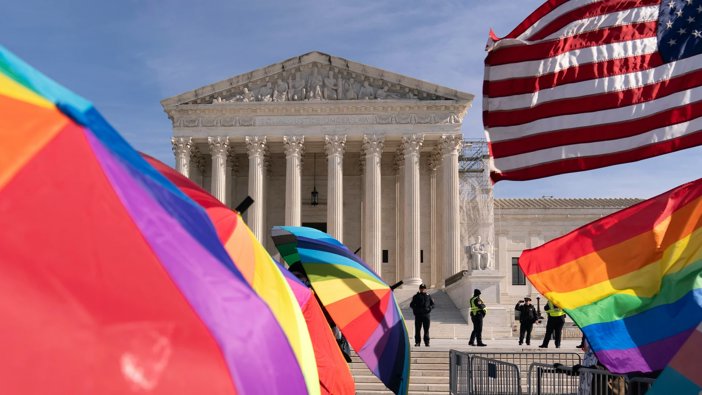
Supreme Court Upholds Tennessee Ban on Youth Trans Care
Supreme Court upholds Tennessee ban on transgender medical care for minors, sparking debate and mixed reactions.
High Court Ruling Draws Strong Reactions Nationwide
The Supreme Court has upheld Tennessee’s ban on transgender medical treatments for minors in a 6-3 decision, intensifying national debate over the rights of transgender youth and the reach of state legislatures. The ruling leaves intact the 2023 law restricting access to puberty blockers and hormone therapies for minors who identify as a gender different from their biological sex. News outlets across the country characterized the decision as a “major setback” and “devastating loss” for transgender rights, underscoring the sharply divided perspectives on the issue.
The law at the center of the case, United States v. Skrmetti, was challenged by parents of transgender adolescents and a Memphis-based doctor, represented by the American Civil Liberties Union (ACLU). They argued that the law violated the Equal Protection Clause of the Fourteenth Amendment. However, writing for the majority, Chief Justice John Roberts emphasized that the role of the Court was not “to judge the wisdom, fairness, or logic” of the law but to determine its constitutionality, concluding that the law does not violate equal protection guarantees. “We leave questions regarding its policy to the people, their elected representatives, and the democratic process,” Roberts wrote.
Many media organizations reported the ruling as a “huge setback” for transgender rights, with warnings that it could influence similar legislation in other states. Newsweek and other outlets noted the ruling’s alignment with efforts by the Trump administration and Republican-led state governments to restrict transgender medical care, while CNN and The Guardian raised concerns about the wider impact on transgender communities.
Personal Stories and Policy Implications
The decision was welcomed by detransitioners like Prisha Mosley, an ambassador for the group Independent Women, who underwent medical transition as a teenager and later regretted the procedures. Mosley, who began transitioning in her teens and received puberty blockers, testosterone, and a double mastectomy, argued that medical professionals preyed on her vulnerability and left her with lifelong health issues. She celebrated the Court’s decision, saying, “This ruling is good for people, for children who identify as trans too.”
Mosley testified in support of state laws restricting such treatments, warning of “irreversible” harm and “devastating consequences” for minors pushed into gender transition procedures. She criticized activists and some medical professionals for, in her view, misleading vulnerable youth with euphemisms and inadequate medical explanations. “It’s impossible to actually have a sex change… all you transition into is a less healthy version of yourself with the same problems that brought you to reject your sex,” she said.
The Tennessee law imposes penalties on healthcare providers who continue to offer gender-transition-related care to minors, including fines and civil liability. Proponents of the law argue that it protects children from experimental and irreversible medical interventions. Opponents, including legal and medical advocacy groups, argue that it denies necessary care and threatens the rights of transgender youth and their families.
Analysts note that the ruling may set a precedent for similar bans across the country, as states weigh their own legislation on the contentious issue. Meanwhile, political commentators anticipate that the debate will remain at the forefront of state and national elections, with both parties using the topic to energize their respective bases.
As reactions to the decision continue, families and individuals affected by the ruling are left to navigate a rapidly changing legal landscape, underscoring the complexity and sensitivity of balancing individual rights, parental roles, and public policy in modern America.






